Stages of Colds & Flu
And what to do when they happen to you.
Get full access to Outside Learn, our online education hub featuring in-depth nutrition, fitness and adventure courses, and more than 2,000 instructional videos when you sign up for Outside+..
When Jack Frost starts nipping at your nose, bundle up—and avoid touching your mouth, nose, and ears at all costs. Why, you ask? The common cold and flu thrive in cooler temperatures, so it’s essential to keep your immune system in tip-top shape and steer clear of germs as much as possible. But what to do if you fall victim? No fret. We’ve tapped Emily Kiberd, DC, a top wellness expert at Urban Wellness Clinic in New York, to give us insight on what to do if and when symptoms start to occur.
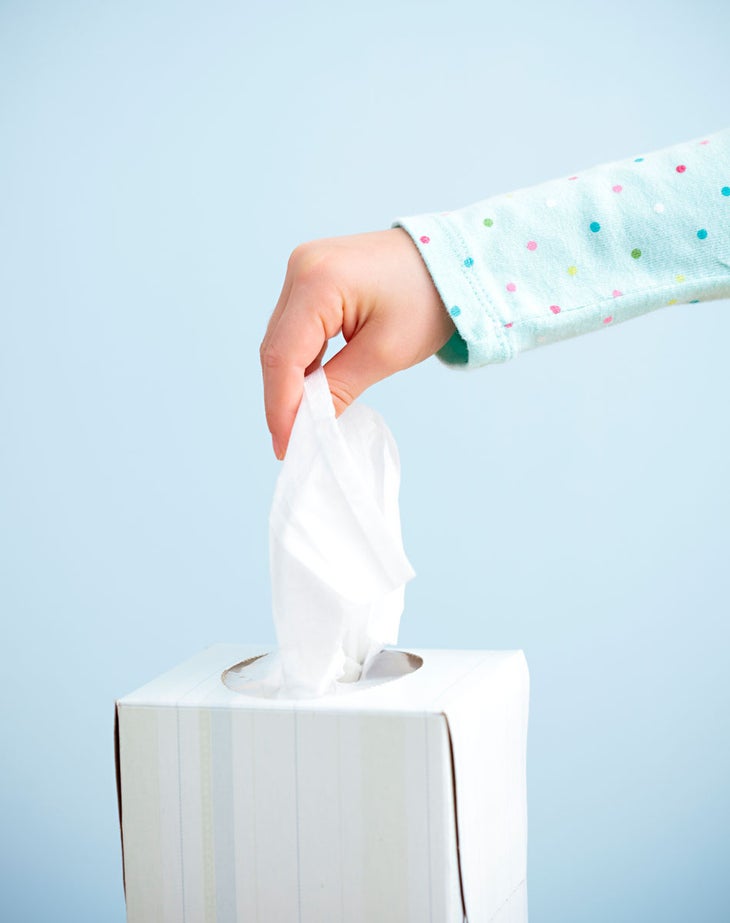
The biggest player in keeping a healthy immune system, though, just so happens to be maintaining healthy gut flora—making probiotics a must. “Probiotics help keep your gut running like a well-oiled machine, reducing inflammation and preventing infection during cold and flu season,” relays Kiberd. In addition, she covers other wonder-working natural remedies and supplements that will help you prevail post-cold and -flu.
Stage 1 – Take Preventive Measures
Whether you have symptoms or not, it’s important to keep your immune system healthy during winter. Kiberd notes that prevention should start way before the season begins. “Almost 70 percent of your immune system is found in the gut flora,” she says. “Gut bacteria are everything! They help your body digest food, and play an integral role in regulating your metabolism, weight, and immune system. A resilient immune system goes hand in hand with a healthy, well-functioning gut. In fact, the number of bacteria in our gut outnumber the number of cells in our body 10 to 1.” To ensure you’re getting a proper dose of probiotics, seek fermented foods such as sauerkraut, kimchi, miso, kombucha tea, and kefir, or search for a probiotic supplement that’s right for you. Just remember, probiotic supplements should always be live cultures.

Other preventive measures include simple tasks like washing hands frequently, getting plenty of sleep, taking 500–1,000 mg of vitamin C daily, eating whole foods, and exercising regularly. The combination of “eating right, staying well-hydrated, and getting plenty of sleep will keep your immune system healthy and your body more able to respond to stressors like a virus or bacteria invading your body,” says Kiberd. “If you are in a constant state of stress and then get exposed to the cold or flu, you are less likely to fight it off successfully.”
Stage 2 – When Symptoms Start to Occur
Common cold and flu symptoms include, but are not limited to, nasal congestion, sneezing, sore throat, cough, fever, chills, and fatigue. Cold symptoms are usually milder than the flu, but both can take a huge hit on the immune system, so it’s key to address first signs as soon as they occur.
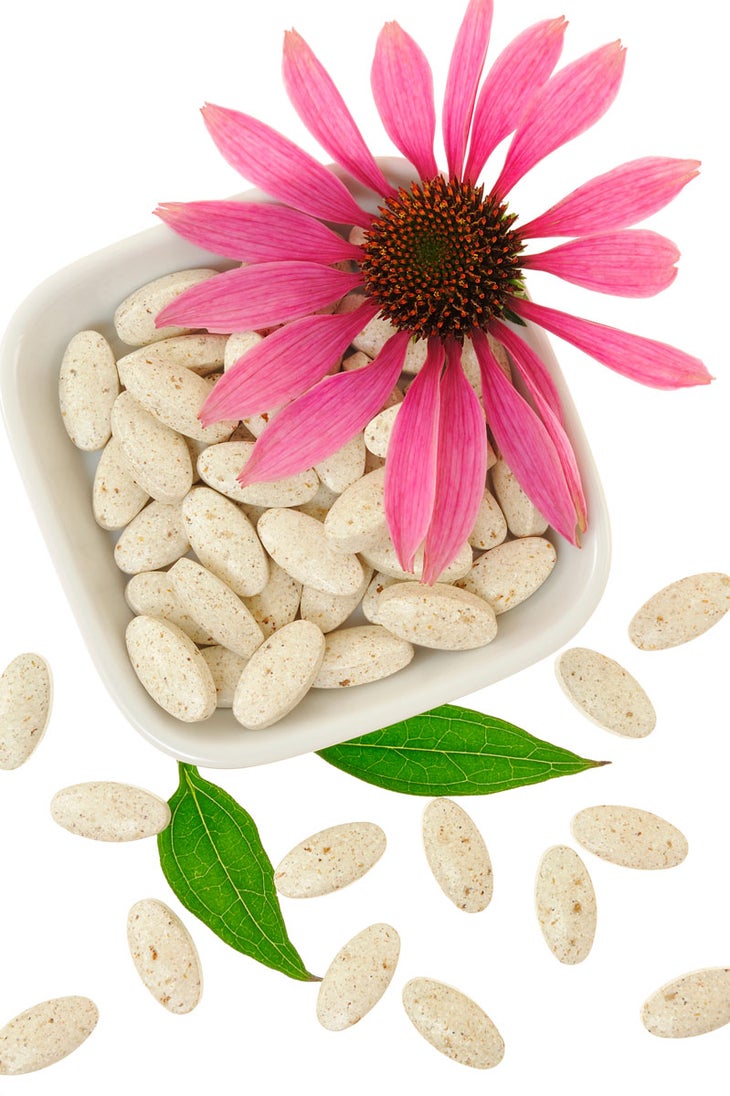
Vitamin C and echinacea are a given, but there are also a few other supplements and natural remedies to try. Kiberd recommends taking andrographis (300 mg tablets) four times daily during the first few days of a cold. “Recent studies here have reported antimicrobial, anti-inflammatory and immunomodulatory effects (that boost the body’s natural immune response),” she says. Cooking with fresh garlic or adding garlic to a fresh-pressed juice is also a great cold buster because garlic contains a compound called allicin that has antimicrobial activity. Elderberry extract or lozenges, when taken within the first 48 hours, may also reduce symptoms.
Medicinal mushrooms can also help to nip symptoms in the bud. For example, shiitake (Lentinula edodes) contains a phytonutrient called lentinan that has been shown to boost production of natural killer (NK) cells. Other research shows that a proprietary extract known as AHCC also enhances NK cell activity.
Stage 3 – When Full-blown Symptoms Occur
During this stage, you’re fully aware of what hit you, and are probably feeling very weak and vulnerable. In addition to the initial symptoms, sneezing, sore throat, nasal congestion, cough, and fatigue have most likely worsened. Kiberd recommends continuing all of the suggestions and remedies for the previous stages, plus several additional tricks to help with pain and discomfort.

“Ease symptoms of nasal congestion and/or sinus congestion by adding chamomile flowers or 5–10 drops of eucalyptus essential oil (or both!) to boiling water,” she says. “Place your head under a towel over a pot of boiling water—keep a safe distance—and inhale the steaming vapors for 10–15 minutes.” This is a great remedy to try before going to sleep, as it will help you breathe easier. “Adding honey to hot teas will help ease and heal a sore throat,” she notes. Ginger root also helps to heal a sore throat; it contains gingerols, which kill rhinoviruses, the cause of the common cold.
Adding zinc to your winter health arsenal is a must. Kiberd suggests taking 23 mg tablets every two hours while awake to help combat symptoms. And last but not least, adding 1–2 drops of oregano oil, a powerful antimicrobial, to 4 ounces of water helps fight off infections.
Stage 4 – The Road to Recovery
Recovery is, perhaps, the most important stage. If you’re not careful, symptoms could come back to haunt you with a vengeance. While you should always continue with prevention steps, Kiberd offers a few other suggestions to help ensure colds and flu don’t come back.
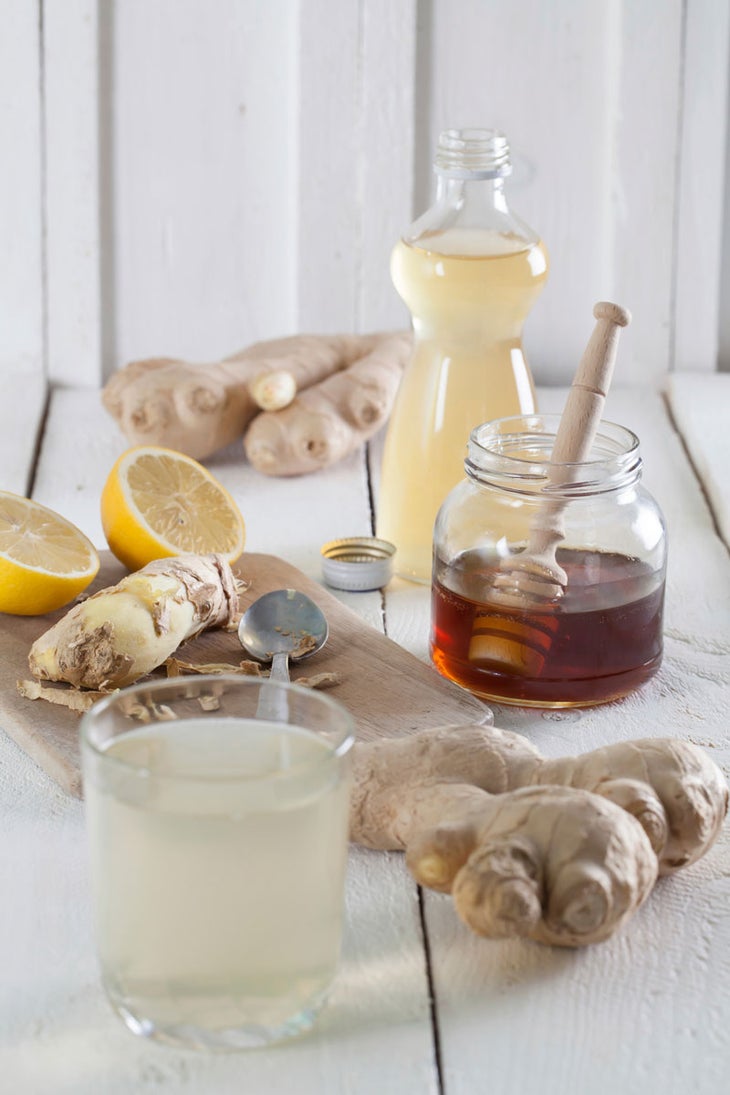
“A cough can last for weeks even after other symptoms have resolved, so use ginger tea with honey,” she says. Honey boasts antibacterial properties and will help reduce swelling and soothe soreness. Hydration, electrolytes, and green tea should also be top of your list for recovery. And while you’re on the path to feeling better, it’s best to steer clear of anyone who may be sick—this includes public places where you may come
into contact with germs.
Could It Be Pneumonia or Bronchitis?
If you’ve taken all of the proper steps for recovery, but your symptoms worsen, maintain vigilance. Contrary to popular belief, pneumonia and bronchitis, two of the most Googled health topics, can occur no matter what your age, and take place when cold or flu doesn’t subside. “Pneumonia and bronchitis can happen when a cold/flu is not properly treated or becomes chronic,” states Kiberd. “At this point, it would be negligent to say that more conventional therapies are not needed (antibiotics if the infection is bacterial). If the infection is viral, treatment and recommendations remain the same—the most important is getting rest and plenty of fluids.” While a cough can linger, monitor your recovery symptoms, and if wheezing, shortness of breath, chest pain, and fever arise, immediately give your doctor a call.

Ginger root helps to heal a sore throat; it contains gingerols, which kill rhinoviruses, the cause of the common cold.
Cold & Flu Fighters
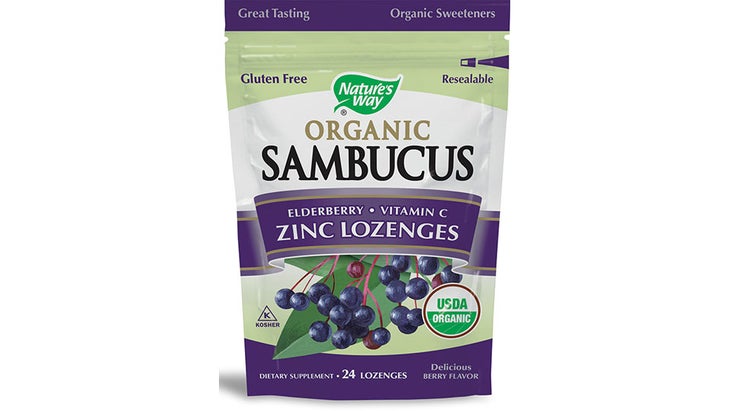
Nature’s Way Organic Sambucus Elderberry • Vitamin C • Zinc Lozenges
Garden of Life Dr. Formulated Probiotics Once Daily Ultra
.
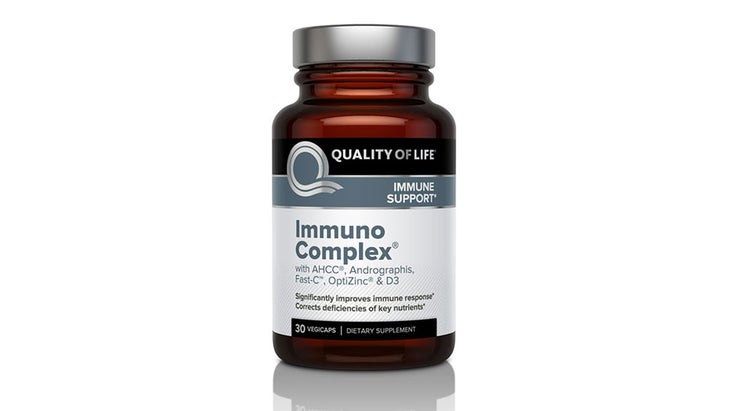
Quality of Life ImmunoComplex (with AHCC)
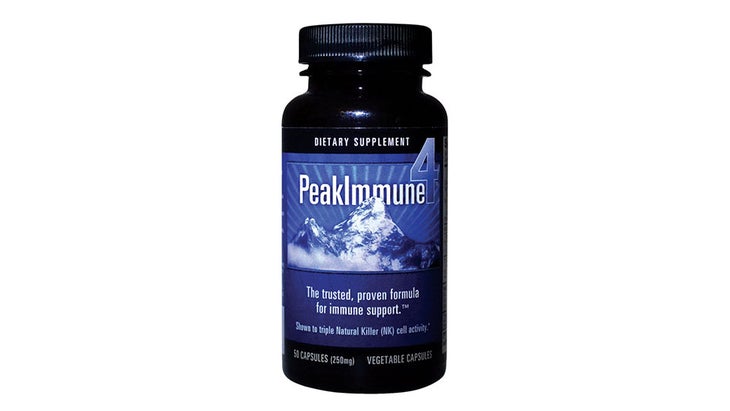
Daiwa Peakimmune4 (contains shiitake mushroom extract)
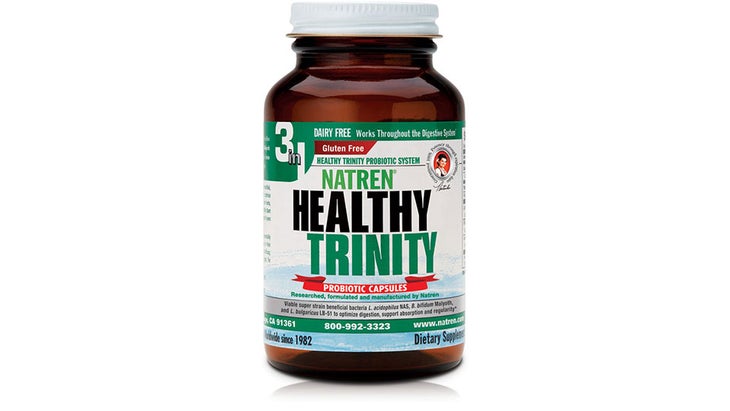
Natren Healthy Trinity